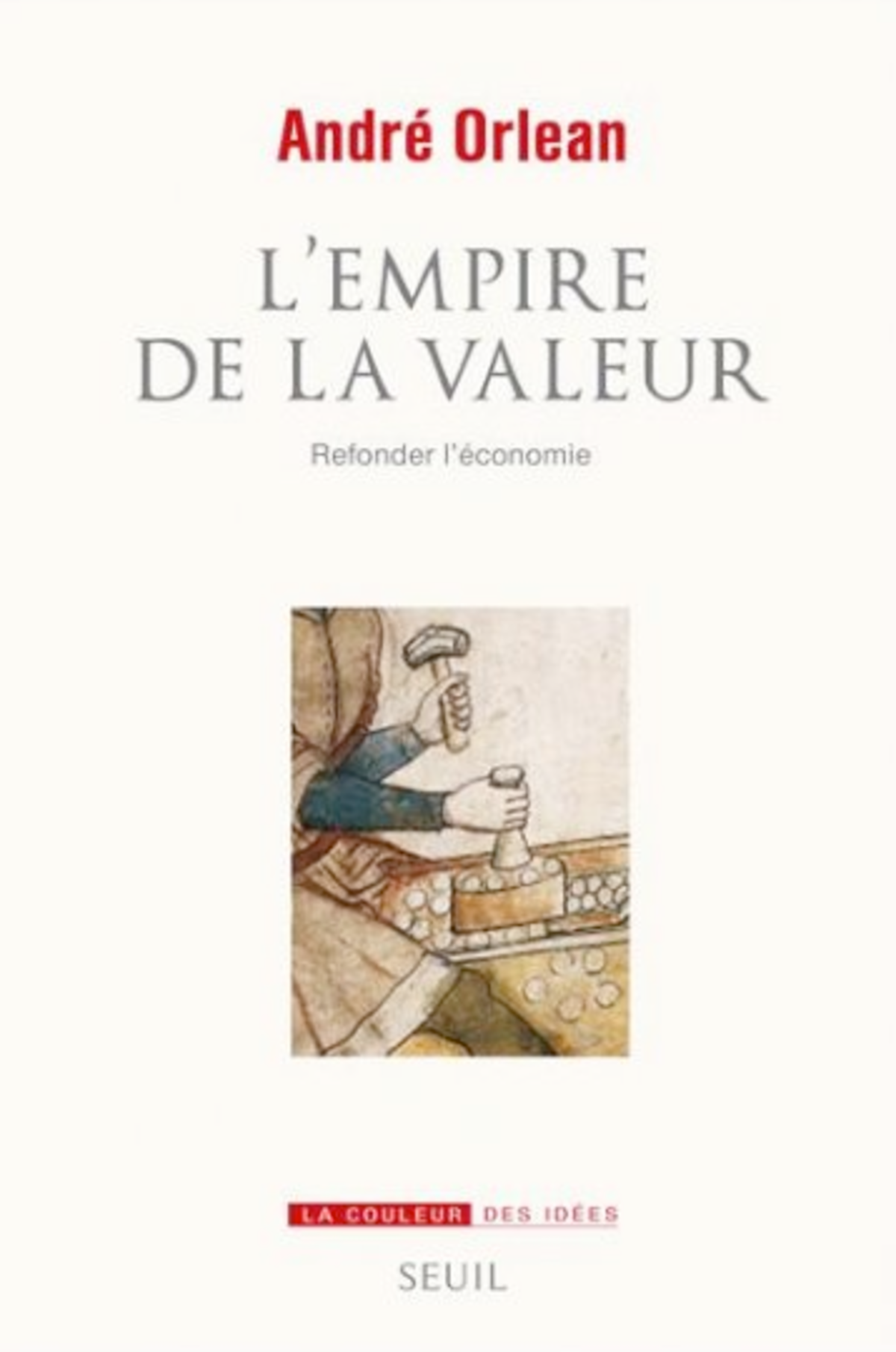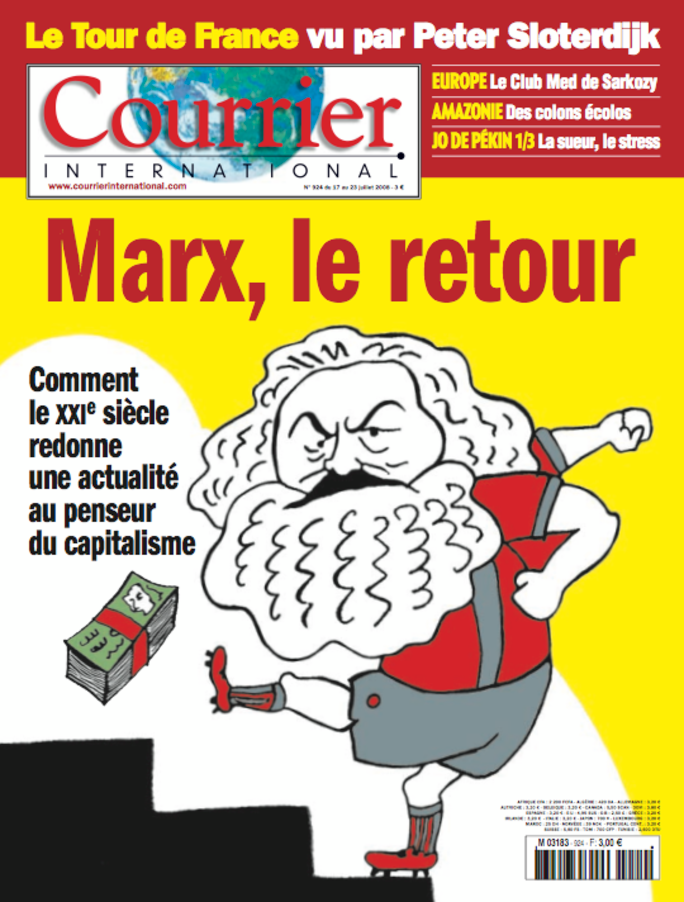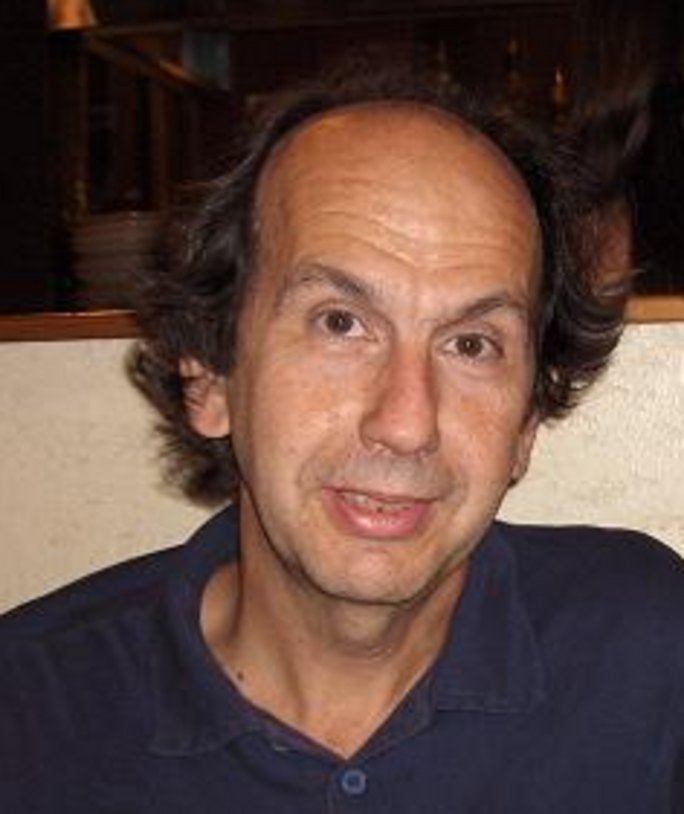The financial crisis that deepens by the day was not only unforeseen by the economic establishment, but has also had little, if any, effect on policies. One of those who has long warned of the dangers now becoming a catastrophic reality is prominent French economist André Orléan, a distinguished academic and a director of research with the French national scientific research centre, the CNRS. In a book just published in France, and soon to be available in English, he calls for an urgent and radical reappraisal of our approach to economics. Ludovic Lamant reviews a work that is set to cause some lively argument.
-------------------------
In November 2008, Queen Elizabeth II led ceremonies for the opening of the New Academic Building of the London School of Economics. During a discussion with LSE academics, she asked them why the experts had not seen the crash coming (one in which she lost an estimated £25 million from her personal wealth).
"She was asking me if these things were so large how come everyone missed it," recounted Professor Luis Garicano, LSE research director, who said he told her that "at every stage, someone was relying on somebody else and everyone thought they were doing the right thing." It wasn't, however, until the following June that a group of leading British economists finally gave the Queen something resembling a response to her question, in the form of a three-page report.
"In summary, Your Majesty," the report concluded, "the failure to foresee the timing, extent and severity of the crisis and to head it off, while it had many causes, was principally a failure of the collective imagination of many bright people, both in this country and internationally, to understand the risks to the system as a whole."
Yet, while the subprime crash has profoundly discredited an economic science completely cut-off from reality, fascinated by mathematical abstractions, and insensitive to the evolution of global macro-economic conditions, economic science appears to have learnt few lessons, despite the mea culpa expressed by a few of its grand figures. The academic courses and authoritative reviews remain faithful to the same mantras inspired by the theories of neoclassical economics.

"Whereas it should have been a guide for our societies, [the economy] has revealed itself to be a source of confusion and error," writes André Orléan, a prominent French economist specialised in finance and monetary policy, in the opening pages of his latest essay, L'Empire de la valeur (The empire of value). "A suicidal policy of financial deregulation has been led in its name, without any warning ever being given to the magnitude of the dangers involved."
Orléan, head of studies at the leading French social sciences higher studies school EHESS, director of research with the French national scientific research centre, the CNRS, is also the founder of the maverick Appalled Economists movement. In his essay, he argues for a "complete revision" of our approach to economics which he says should become a discipline affiliated to social sciences and not mathematics.

Enlargement : Illustration 2

"Contrary to what some magazine covers led to believe by announcing the return of Marx, Schumpeter and others, nothing is moving," comments Orléan.
His essay contains some ideas that have been argued for several years, such as that of information asymmetry by US economist Joseph Stiglitz (for which he was jointly awarded the 2001 Nobel prize for economic sciences). In short, this is the recognition that not all agents in the market are acting with the same approach at the same time. There are also the theories of George Akerlof and Robert Shiller, authors of Animal Spirits, a key work in behavioural economics, which argues for an understanding of social and psychological influences upon economic actors. But, by bringing all of these schools of thought together under one umbrella and proposing a radical new ‘after-crisis' model, Orléan proposes something quite unique. It provides spiced food for thought for all those immobile academics still adhering to conventional wisdom.
An 'economy of relationships'
His demonstration begins with the old question (that addressed by the likes of Karl Marx, Adam Smith, David Ricardo and others still) of how is a market formed. What is the coordination between producers, on the one hand, and consumers, on the other, so that exchanges between the two happen? The standard answer to this is the intrinsic value of an object, one which, argue neoclassical economists, is linked to its usefulness. Marxists argue that its value is measured by the amount of work necessary in producing the object.

Orléan attacks this notion of value, arguing - against Marx - that value is not a substance in itself. There is, he sets out, no objective value of things, but rather there are judgments of values. In place of measuring the usefulness of an object or the labour required to produce it, Orléan proposes an ‘economy of relationships'; this is the idea that the value of an object does not lie in the object itself but from the relationship between individuals.
Orléan argues that the value of an object is decided by the rivalry between individuals to acquire it. "Individuals do not know what they desire [...] To determine what deserves to be acquired, they look around themselves, seeking in the experiences of others a model to be imitated," he writes. Favoured objects are those that increase their social prestige, beginning with one that has been long ignored by economists: money.
Orléan, who subscribes to the ‘economy of convention' school, says it is the "desire for money" that establishes market relationships, and not the "quest for useful objects" as argued by the neoclassical economists. Money, he writes, gives value to goods.
For an end to currency 'neutralization'
The current crisis over the euro, which was put in circulation without a proper political programme, illustrates how the fundamental importance of money has been ignored by prevalent liberal economic theories. Money, or currency, bothers them because it obstructs the efficiency of markets, deforming pure competition.
"When money [as currency] talks, it is never in the language of economics, but always in that, quite different, of sovereignty," writes Orléan. "Money is worrying because of its very power, provoking individual behavior that abandons rationality."
He says liberal theorists, from Jacques Rueff to Milton Friedman, have made "neutralization of money their central objective in terms of currency policies", currently illustrated in Germany's insistence for the independence of the European Central Bank, in an attempt "to eradicate the political dimension" of money.
Putting an end to this "neutralization" of currency requires an understanding of the logic of the circulation of money, of what forms collective confidence and belief in it. It is here, argues Orléan, where social sciences take their place. "Economic value, while it has the appearance of a number, is a social force," he says. He develops this argument with an analysis of the works of leading sociologists Georg Simmel (on the issue of confidence), Emile Durkheim and Marcel Mauss.
For all that, Orléan does not dismiss certain decisive economic laws in his demonstration of the importance of sociological factors. This is notably the case in his exposure of the speculative mechanisms at work on the financial markets, in which figure both issues of liquidity and "mimicry".
It remains to be seen what reception will be given to Orléan's work by academics in France and also, after its planned publication in English, in the US and Britain. It might just succeed in shaking up a discipline that has remained unstirred by even a massive economic crisis.
-------------------------
'L'Empire de la valeur' is published in France by Seuil, priced 23 euos.
------------------------


